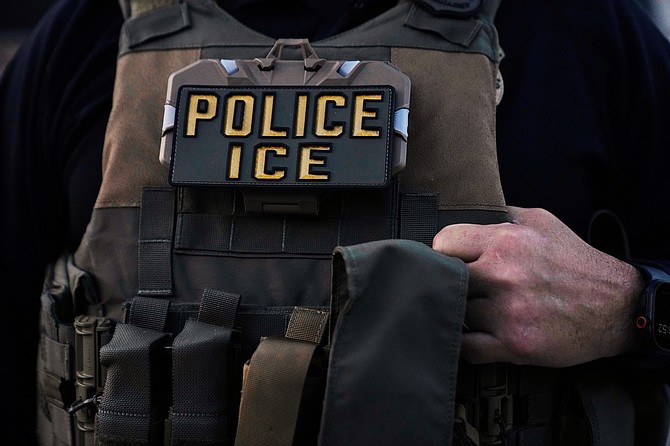Deanna Richardson, a 47-year-old transgender woman, was forcibly deported from the United States to the Bahamas, a country she had not seen since she was two years old. Handcuffed and shackled, she was escorted onto a plane, where an officer reportedly told her, ‘In Trump’s world, there are only two genders. Put him back with the other men.’ Hours later, she found herself in the Bahamas, her life abruptly upended.
Ms. Richardson, who had built a stable life in San Diego as a custodial manager, was ambushed near her apartment by U.S. immigration agents. She was shuttled through detention facilities in Texas and Florida before being flown to New Providence alongside 44 other deportees. ‘They just jumped out of the bushes and grabbed me,’ she recounted. ‘I didn’t see a lawyer or a judge. I kept asking to speak to my deportation officer—no one would tell me anything.’
Her deportation highlights the human toll of U.S. immigration enforcement, which has increasingly targeted long-time residents, often returning them to countries ill-equipped to provide support. According to U.S. Immigration and Customs Enforcement (ICE) data, arrests and detentions of Bahamian nationals have risen steadily, peaking in fiscal year 2024 with 128 arrests, 163 detentions, and 92 removals.
Upon arrival in the Bahamas, Ms. Richardson was processed by Immigration and INTERPOL before being placed in temporary accommodation at a government-assisted shelter. However, she has struggled to obtain identification documents necessary for employment, banking, or housing. ‘They keep sending me back and forth between offices,’ she said. ‘It’s just a merry-go-round. The government agencies here, nobody talks to each other, so nobody knows what any of the other agencies are doing.’
Ms. Richardson described her return as a ‘culture shock’ and expressed concerns for her safety in public spaces. ‘I told ICE about the risks for people like me here, and they didn’t care,’ she said. ‘I almost got attacked because someone thought I was something I wasn’t. I don’t feel safe; I just want to get my ID, get a job, and live.’
Despite the challenges, Ms. Richardson remains resilient. ‘My mental health is horrible right now, but I’m a survivor,’ she added. ‘I’ve survived everything life has thrown at me—but this, this I was never prepared for.’
